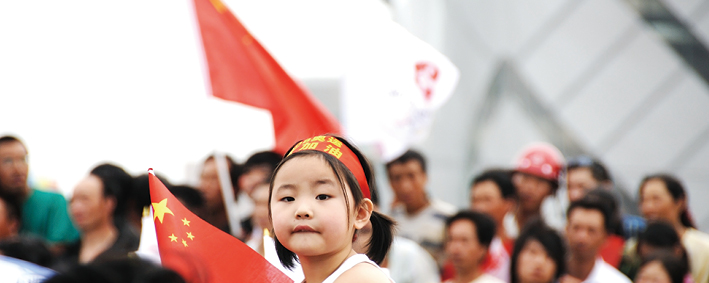 |
CCCH9032 China: Culture, State and Society
|
Course Description
This course deals with sports and their impact on Chinese society with special focus on the role of sports in China’s search for national identity and internationalization. It will provide students with an in-depth understanding of Chinese society, popular culture, and politics. Students will learn how the Chinese have interacted with different peoples from the rest of the world in international games such as the Olympics and the Football World Cup. The course will help students to examine how different peoples, nations, and governments have responded to sports, how the Chinese turned sports into vehicles for both nationalism and internationalism, how Chinese governments in different stages and periods have linked sports to their political legitimacy, and how sports serve as tools for nation building, expressions of national identity and national honour or personal freedom in China. By examining the role of sports in Chinese society, students will gain valuable contextual understanding to better explain culture and politics and better understand China, its society, and its positions in the world.

Course Learning Outcomes
On completing the course, students will be able to:
- Apply critical and creative thinking skills to the analysis and interpretation of primary documents and secondary materials related to sports and Chinese society covered in this course.
- Apply research and historiographical skills (including developing hypotheses, conducting original research, and placing research findings within existing scholarly contexts) to the analysis and interpretation of primary historical texts and secondary materials on issues related to sports and Chinese society covered in this course.
- Interpret, analyze, and critically and creatively reflect upon how sports played an important role in defining and affecting Chinese society and politics and gender issues and how sports has changed its people, the nation, and the world in fundamental and sometimes profound ways.
- Interpret, analyze, and critically and creatively reflect upon how Chinese attitudes towards traditional and modern sports are affected by national politics and elite members, and how by studying sports students are better equipped to address questions “what is China” and “who are the Chinese”.
- Interpret, analyze, and critically and creatively reflect upon how China’s rise as a sports power coincides with its rise as an economic and political power and affects the country’s relations with the rest of the world.
Offer Semester and Day of Teaching
Second semester (Wed)
Study Load
| Activities | Number of hours |
| Lectures | 24 |
| Tutorials | 10 |
| Reading / Self-study | 60 |
| Film viewing | 15 |
| Internet search | 15 |
| Assessment: Essay / Report writing | 20 |
| Assessment: Presentation (incl preparation) | 12 |
| Total: | 156 |
Assessment: 100% coursework
| Assessment Tasks | Weighting |
| Tutorials (discussion, presentation, debate) | 30 |
| Short essay | 40 |
| Film viewing and internet search | 30 |
Required Reading
- Xu, G. (2008). Olympic dreams: China and sports, 1895-2008. Cambridge, MA: Harvard University Press.
Various articles from newspapers and academic journals. A detailed reading list will be provided in the course syllabus.
Course Co-ordinator and Teacher(s)
| Course Co-ordinator | Contact |
| Professor G.Q. Xu School of Humanities (History), Faculty of Arts |
Tel: 3917 2876 Email: xuguoqi@hku.hk |
| Teacher(s) | Contact |
| Professor G.Q. Xu School of Humanities (History), Faculty of Arts |
Tel: 3917 2876 Email: xuguoqi@hku.hk |

